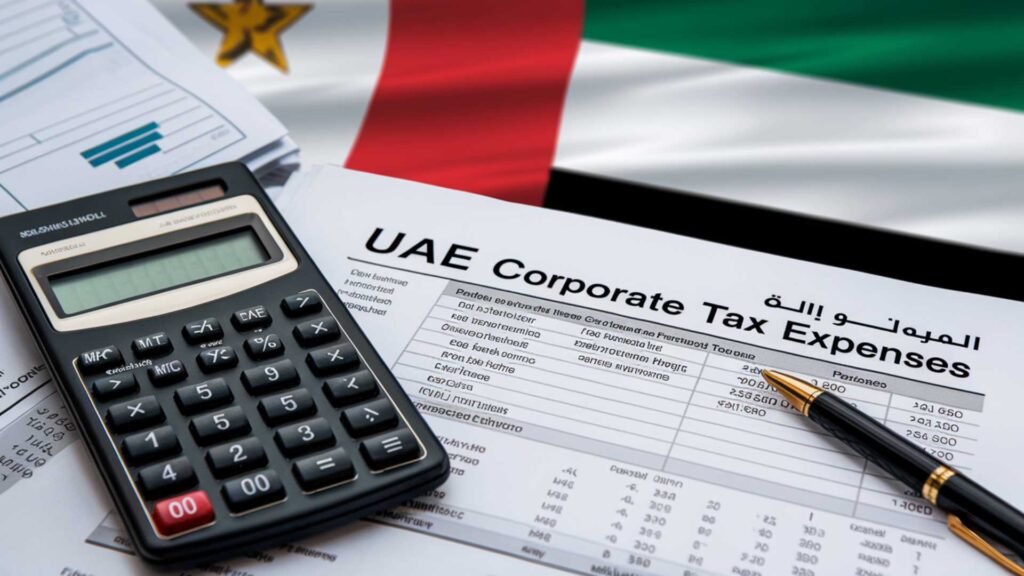In Abu Dhabi’s tightening tax landscape, navigating corporate tax obligations demands more than basic bookkeeping. FTA approved tax agents in Abu Dhabi are not just consultants—they are licensed professionals who serve as your frontline allies in tax compliance and strategic planning. As official representatives recognized by the Federal Tax Authority (FTA), these experts help businesses stay aligned with UAE tax laws, handle complex filings, and ease the administrative load that tax management often brings.
Who Are FTA Approved Tax Agents in the UAE?
An FTA approved tax agent in the UAE is not merely an accountant; they are licensed professionals officially authorized by the Federal Tax Authority (FTA) to represent taxable persons and businesses in all dealings with the Authority. The “FTA approved” designation is a mark of professional qualification and trust. These tax agents act as intermediaries between companies and the FTA, ensuring accurate tax management and compliance with federal tax laws. Once approved, tax agents are listed in the FTA’s public registry, a clear endorsement of their competence and trustworthiness.
Qualifications and Registration Requirements for Tax Agents
Becoming an FTA-approved tax agent in the UAE is a rigorous and structured process designed to ensure only qualified professionals represent businesses before the Federal Tax Authority (FTA). The key qualifications and registration requirements include:
- Educational Prerequisites: Candidates must hold a bachelor’s or master’s degree in accounting, law, or taxation from a recognized institution. Alternatively, a tax certification from an internationally recognized body is accepted if the degree is in another field.
- Professional Experience: A minimum of three years of recent, relevant experience in tax, accounting, or law is mandatory. This ensures agents have practical knowledge of tax operations alongside theoretical expertise.
- Linguistic Proficiency: Fluency in both Arabic and English, in written and spoken forms, is required to communicate effectively with clients and the FTA.
- FTA Tax Agent Examination: Applicants must pass the formal FTA Tax Agent exam, which tests knowledge of local tax laws, procedures, and compliance standards.
- Code of Ethics and Registration: Once the hurdles are cleared, they must formally register with the FTA and commit to its strict ethical code, under the umbrella of the FTA Guidelines for Tax Agents.
- Additional Requirements: Submission of a certificate of good conduct, proof of medical fitness, and having professional indemnity insurance coverage are also required to protect both the agent and clients.
- Registration Fees: A registration fee (e.g., AED 3,000) applies, with renewal required every three years to maintain status.
Why Businesses in Abu Dhabi Need a Tax Agent
Abu Dhabi’s commercial landscape has become markedly more regulated, particularly following the introduction of the federal corporate tax regime in mid-2023, alongside existing VAT and excise tax frameworks. For many businesses especially small to mid-sized enterprises the risk of non-compliance often stems not from negligence, but from a lack of familiarity with evolving tax laws and administrative procedures.
An FTA-approved tax agent ensures accurate filings, prevents costly errors, and keeps you compliant with evolving FTA rules. Beyond paperwork, they offer strategic tax insights and help optimize your fiscal position. Beyond compliance, tax agents frequently function as strategic advisors guiding companies on lawful tax optimization strategies, interpreting legislative updates, and aligning financial practices with best-in-class standards. Their insight into both local and federal taxation nuances enables businesses to maintain a proactive stance in a shifting regulatory environment.
In short, In today’s regulatory climate, hiring a certified tax agent or a qualified Corporate Tax Consultant in Abu Dhabi is not just smart. It’s essential.
Key Responsibilities of a Tax Agent as Per the FTA
The Roles and Responsibilities of Tax Agents are clearly defined by the Federal Tax Authority, offering no room for ambiguity. Their duties include, but are not limited to:
- Preparation and Filing: Assisting taxable persons by preparing and submitting all required tax returns accurately and within the prescribed deadlines in alignment with FTA standards.
- Compliance Monitoring: Advising clients on their tax obligations under UAE laws, helping them maintain full adherence to all relevant tax regulations, including VAT, excise, and corporate tax.
- Recordkeeping: Ensuring that clients maintain accurate and comprehensive financial records and audit trails for the required retention period (at least five years), facilitating smooth audit processes.
- Audit Support and Representation: Representing clients before the FTA during audits, providing necessary documentation, explanations, and liaising with tax auditors to resolve queries effectively.
- Confidentiality and Ethical Conduct: Maintaining strict confidentiality of client information obtained during their duties and refusing to engage in any activities that would breach the law or compromise the tax system’s integrity.
- Ongoing Obligations: Renewing their registration and adhering to professional ethical standards set by the FTA, including acting honestly and with due care in all dealings.
This structured approach fosters both legal compliance and financial transparency.
Representation Before the Federal Tax Authority (FTA)
One of the most critical functions of a tax agent is their capacity to represent businesses in official matters before the FTA:
· Official Correspondence: Handling notices, queries, and responses directly with the FTA.
· Audit Management: Leading FTA audits, furnishing documentation, and resolving queries with clarity and professionalism.
· Dispute Handling: Representing the business in disagreements or penalty appeals, ensuring their interests are protected throughout the process.
This role not only alleviates administrative burden but also shields businesses from procedural missteps and reputational risks.
How Tax Agents Help Avoid Penalties and Errors
The most expensive tax mistake a business can make is assuming it understands the law well enough to go it alone. From misinterpreting tax rates to underreporting revenues, errors in tax filing are often costly and entirely preventable.
- Accurate Filing: Carefully reviewing and verifying all data before submission.
- Timely Compliance: Offering timely reminders and structured filing processes.
- Legal Updates: Keeping clients informed about changes in tax laws and revising practices accordingly.
Their continuous oversight can mean the difference between compliance and costly errors.
Benefits of Working with an FTA Approved Tax Agent
The advantages of hiring a certified tax agent are multifaceted. Beyond compliance benefits, they offer:
- Expert Oversight: Access to specialists who understand the intricacies of UAE tax law.
- Cost Efficiency: Prevent fines, reduce in-house administrative burden, and improve tax efficiency.
- Strategic Focus: Free up leadership to focus on operations while the agent handles compliance.
- Risk Reduction: With robust documentation, timely submissions, and audit readiness, tax risks are significantly minimized.
- Financial Clarity: Gain a clear picture of tax liabilities and strategies for optimization.
In an age of regulatory tightening and increased governmental scrutiny, navigating the UAE’s tax environment is not a task to be taken lightly. The support of FTA approved tax agents in Abu Dhabi is indispensable for businesses that seek legal compliance, financial accuracy, and peace of mind.
Whether you’re a startup looking for your first filing or an established entity undergoing a tax audit, a registered tax agent provides not just service but stewardship. Engage wisely, and you’ll be investing in the long-term health of your enterprise.


